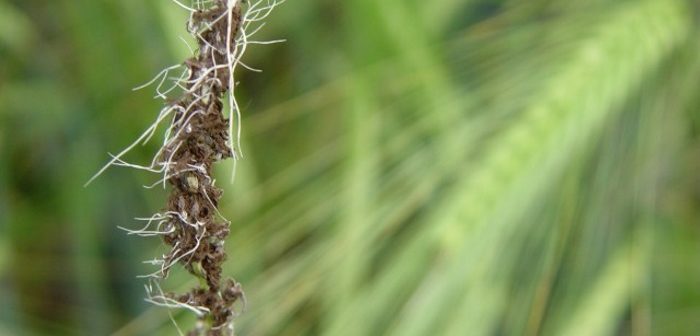Spring barley growers will be turning to new single purpose seed treatments in future following the loss of regulatory approval of the two most popular options. However, only one option will provide the comprehensive early season seed-borne disease control they have become accustomed to in previous seasons, according to Adam Tidswell of Bayer.
Redigo Pro (prothioconazole + tebuconazole), which growers may be familiar with as a single-purpose seed treatment in wheat, is also available for use in spring barley and is perfectly placed to fill the gaps left from the loss of the spring barley approval for Raxil Star (fluopyram + prothioconazole + tebuconazole) and the loss of Kinto (triticonazole + prochloraz), he says.
“Spring barley is only in the soil for four to five months, so it’s vital it gets off to the best start. You need to maintain control of seed-borne diseases like Microdochium nivale, loose and covered smuts and leaf stripe, all of which can be damaging to yield or quality if left untreated.
“In addition, we’ve been seeing more ergot around in barley crops in England, so a product like Redigo Pro, which reduces germination of treated ergot particles, plays a key role in dealing with this issue.”
Redigo Pro has label claims for all these main seed-borne diseases and reduction of ergot, unlike competitor single-purpose seed treatments, he points out. “Losing the spring barley approval for Raxil Star has left a hole, but growers are fortunate that Redigo Pro is available to use without any noticeable change in performance.”




